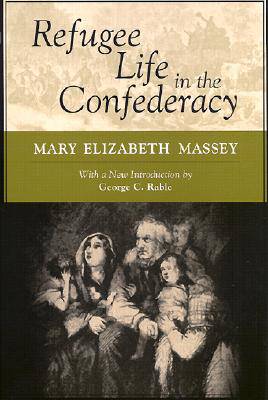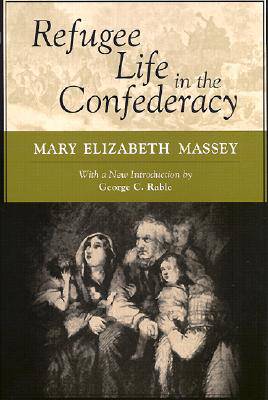
- Retrait gratuit dans votre magasin Club
- 7.000.000 titres dans notre catalogue
- Payer en toute sécurité
- Toujours un magasin près de chez vous
- Retrait gratuit dans votre magasin Club
- 7.000.0000 titres dans notre catalogue
- Payer en toute sécurité
- Toujours un magasin près de chez vous
Description
The Civil War spawned tens of thousands of southern refugees. Some fled from bombardment or rumor of invasion. Others were exiled by enemy commanders. Virtually none anticipated the extreme hardships they would encounter. Through diligent research in manuscripts and newspapers, Mary Elizabeth Massey brings vivid detail to all aspects of southern refugee life. Thrilling tales of displaced people scrambling for trains or making river crossings recapture the poignancy of civilians trapped between advancing and retreating armies.
Massey examines the psychological effects of the war on the homeless, the humor they found in their difficulties, their activities in adopted communities, private and public aid, and legislation concerning them. The refugees created enormous problems for the southern war effort as they crowded into the ever-contracting areas of the Confederacy, disabling wartime transportation and contributing to the congestion of cities to the point that it was difficult to feed and house them. Historians have long recognized the refugees' importance, and writers of fiction their appeal, but Massey's Refugee Life in the Confederacy--originally published in 1964--marks the first full telling of their story. With a new introduction by George C. Rable, this comprehensive study is essential to a thorough understanding of the Civil War.Spécifications
Parties prenantes
- Auteur(s) :
- Editeur:
Contenu
- Nombre de pages :
- 327
- Langue:
- Anglais
Caractéristiques
- EAN:
- 9780807126882
- Date de parution :
- 01-05-01
- Format:
- Livre broché
- Format numérique:
- Trade paperback (VS)
- Dimensions :
- 159 mm x 230 mm
- Poids :
- 489 g

Les avis
Nous publions uniquement les avis qui respectent les conditions requises. Consultez nos conditions pour les avis.






